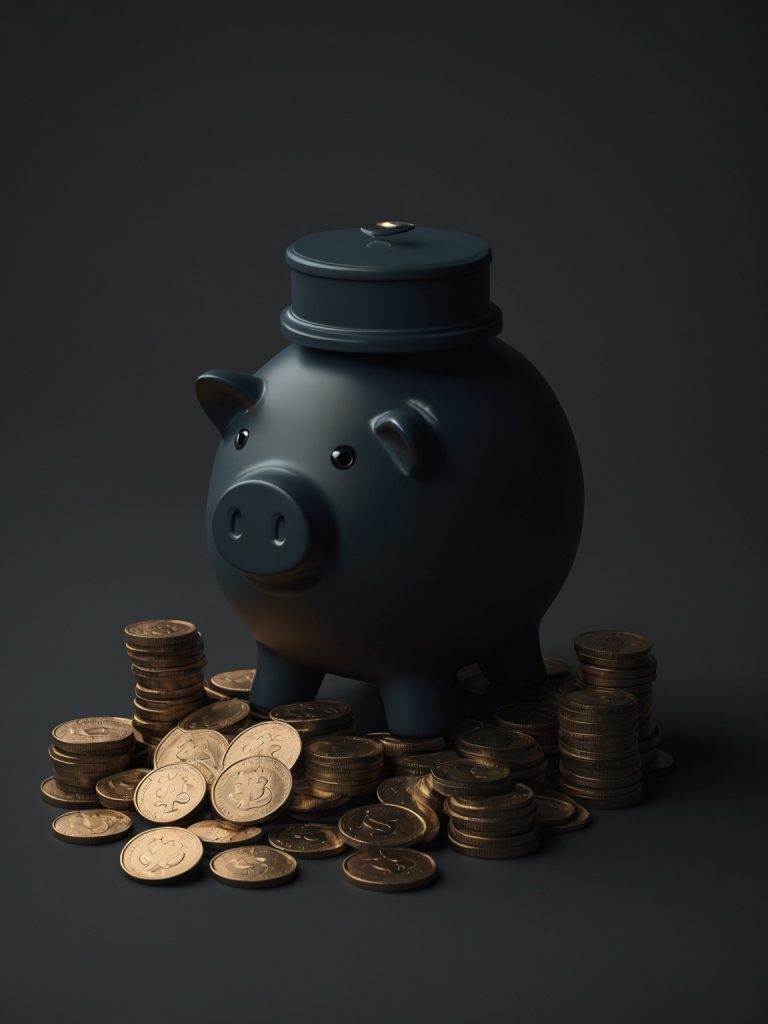This article goes beyond basic budgeting tips. It delves into the deeper psychology of wealth, helping you identify unhealthy patterns and build a relationship with money that supports a fulfilling life, not just financial security.
TL;DR
- Reflect on your values: What truly matters to you in life? Is it money itself, or the experiences and connections it can create?
- Set Intentions: What kind of life do you want to build? How can money be a tool to achieve your goals, not the ultimate goal itself?
- Practice Gratitude: Appreciate what you already have, both material and non-material. Gratitude fosters happiness and well-being.

Hey there! Let’s talk about money. It’s a powerful tool that can fuel amazing things in life, but sometimes our relationship with it can get a little…well, out of whack.
Now, before you worry, this isn’t about judging your personal savings goals. We all have different dreams and aspirations! This is more about a specific pattern: the excessive and obsessive pursuit of wealth.
Think about it like this: imagine a dragon guarding a mountain of gold, refusing to share even a single coin. That’s not a healthy relationship with treasure, right?
Here are some signs that your connection with money might need a little TLC:
- The Bunker Mentality: Are you constantly worried about some future disaster, driven to stockpile resources “just in case”? This kind of anxiety can be paralyzing. There’s a difference between being prepared and letting fear dictate your financial decisions.
- Hoarding Human Capital: Do you see employees as chess pieces to be discarded when they’re no longer “useful”? This not only hurts them, but can damage your reputation. Building a loyal and talented team is key to long-term success. Consider investing in your employees’ growth – it will benefit everyone in the long run.
- The Helicopter Habit: Do you find yourself using a helicopter for short trips that could easily be done by car? This kind of extravagant display of wealth might not be the best use of your resources (or the environment!). Consider your carbon footprint – there are often more sustainable ways to get around. Plus, you might be surprised at the hidden gems you discover when you slow down and explore!
- Healthcare as a Luxury: Do you view the healthcare system as a personal playground for your every whim, driving up costs for everyone else? This not only hurts others, but can backfire in the long run. A healthy society benefits everyone, including the wealthy. Supporting a strong healthcare system ensures quality care for all.

These behaviors can be a symptom of a deeper issue: an unhealthy attachment to wealth. It’s not about being “self-absorbed” – it’s about a pattern that can ultimately be isolating and destructive.
But here’s the good news! Just like any relationship, the one you have with money can be healed. Here are some ways to get started:

- Reflect on Your Values: What truly matters to you in life? Is it the cold, hard cash, or the experiences and connections money can help you create? Jot down your core values and revisit them regularly. This will help you make financial decisions that align with what’s truly important to you.
- Set Intentions: Instead of chasing a never-ending pile of gold, what kind of life do you want to build? Write down your goals and how money can be a tool to achieve them, not the ultimate goal itself. Do you dream of traveling the world? Helping others? Financial planning that aligns with your intentions creates a roadmap for a fulfilling life.
- Practice Gratitude: Take time to appreciate what you already have, both material and non-material. A grateful heart is a happy heart! Studies have shown that gratitude can actually increase feelings of happiness and well-being. Keeping a gratitude journal is a simple way to cultivate this practice.

Here are some signs that your connection with money might need a little TLC:
| Signs of an Unhealthy Relationship with Money | Description |
|---|---|
| The Bunker Mentality | Constantly worried about future disasters, driven to stockpile resources “just in case.” |
| Hoarding Human Capital | Seeing employees as chess pieces to be discarded. |
| The Helicopter Habit | Using extravagant means of transportation for short trips. |
| Healthcare as a Luxury | Viewing healthcare as a personal playground. |
But here’s the good news! Just like any relationship, the one you have with money can be healed. Here are some ways to get started:
- Reflect on Your Values: What truly matters to you in life?
- Set Intentions: Instead of chasing a never-ending pile of gold, what kind of life do you want to build?
- Practice Gratitude: Take time to appreciate what you already have, both material and non-material.

Remember, a healthy relationship with money is about feeling empowered, not controlled. Money should be a tool that helps you live your best life, not a source of constant stress or anxiety.
Ready to take the next step? Let’s chat! I can help you explore these ideas further and create a financial plan that aligns with your values and goals. Just leave a comment below, or send me a message.
Together, we can build a healthier relationship with money – and with ourselves!





